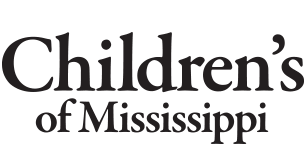I Want To
Contact Us
- For appointments by phone: (601) 984-2700 (Option 1)
- Make an Appointment
Children's Cancer and Blood Disorders
- Children's Cancer and Blood Disorders Home
- Bone Cancer
- Bone Marrow Transplant
- Brain and Central Nervous System (CNS) Cancer
- Germ Cell Tumors
- Hepatoblastoma
- Hodgkin's Lymphoma
- Langerhans Cell Histiocytosis
- Leukemia
- Neuroblastoma
- Non-Hodgkin's Lymphoma (NHL)
- Retinoblastoma
- Soft Tissue Cancer
- Wilms Tumor
- Children's Cancer Support Programs
Children's Soft Tissue Cancer
Soft tissue sarcomas are cancers that develop in your child’s fat, muscle, nerves, fibrous tissues, blood vessels or skin. Collectively you may hear doctors call this their connective tissue. This is different from sarcomas found in bones (see bone cancer).
Sarcomas can be found in any part of the body, but usually appear in a child’s arms or legs. Doctors also find sarcomas in children’s chest and abdomen, head and neck. Sarcomas are uncommon and there are many types. In fact, doctors have identified more than 50 different types of soft tissue sarcomas.
Soft tissue sarcomas account for about 7 percent of childhood cancers and can be found in adults, too, but are rare.
Rhabdomyosarcoma is the one most often seen in children. Others include alveolar soft part sarcoma and fibrosarcoma. Each year, about 900 children are diagnosed with a soft tissue sarcoma.
Can my child survive a soft tissue sarcoma?
The short answer is yes. Five-year survival rates are good overall, but they may differ depending on the type of sarcoma your child has, their age, where it is located in their body and how far it has spread. A few types of sarcoma have a poorer outlook. Your child’s doctors will talk to you and to them about all of these factors.
Doctors are finding new treatments and processes each day to fight those odds, so statistics that applied to a child treated five years ago may be better for children treated today.
Families should know that statistics will not drive the outcome for their child. Each person is different so statistics cannot determine an individual’s outcome. At Children’s Cancer Center, where research already has led to longer survival, doctors are searching for more and more ways for your child to defeat cancer.
Your child's care team
When cancer strikes your child, you need a team of doctors, nurses and other specialists with additional training in treating children.
Children’s Cancer Center has a pediatric oncologist, pediatric neurologists, pediatric surgeons, and specialists in pathology, radiology and radiation oncology. Other team members include nurse practitioners, nurses, palliative care specialists, child life specialists, psychologists and even families who have traveled this road.
Most of these team members meet every week to discuss your child’s case, their progress and any new treatments or techniques that may help them. All are focused on helping your child and your family succeed against cancer. You will meet many members of your child’s team, but may never see others.
What we do
Your child's care team works with you and your family throughout your child’s treatment. Children's Cancer Center is part of Children's of Mississippi and the UMMC Cancer Center and Research Institute. Team members listen to you, talk to you and then talk to each other in an effort to provide the best and most seamless care possible. Our doctors, nurses and other specialists are involved every day in treating patients, teaching the next generation of caregivers and in doing research on how to better cure the very cancer your child may be battling. That means they stay up to date on the latest treatments and research available.
This team also knows that battling any disease is emotionally, physically and financially draining and do all they can to help. For example, when possible, they will try to arrange all your child’s appointments for the same day and try to have various specialists visit your child in one room, so you don’t have to have to roam across the hospital’s large campus. Treatment caters to your child with toys, movies and other distractions to help ease the boredom and fear that can accompany medical visits.
The first priority is curing your child’s cancer, but team members never forget they’re dealing with children. Needles will be a part of this healing process, but your child will get more hugs than shots from this team. If you choose, a family that has been in your situation will contact you to offer social support and the wisdom of their experience.
Children's Cancer Center offers dozens of other support services your family and your child may use. Services include counselors, dentists, teachers and many others who work with your family during this critical time.



 UMMC
UMMC